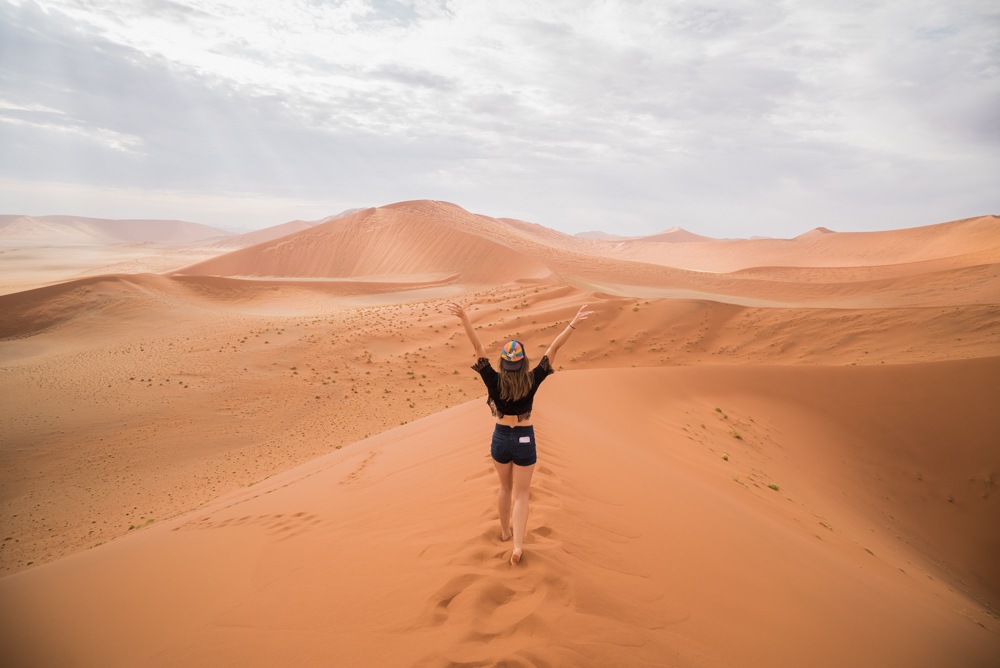Planning a solo trip can be a stressful experience, especially if you are doing it for the first time. Having planned literally hundreds of solo trips over the course of nine years, I have now mastered a failure-proof formula that makes sure I have a successful trip on which I don’t get scammed, save as much money as possible, and have a positive impact, not only on myself but also the places I visit.
Here are the 7 steps to plan a fabulous solo trip:
1. Pick Your Destination
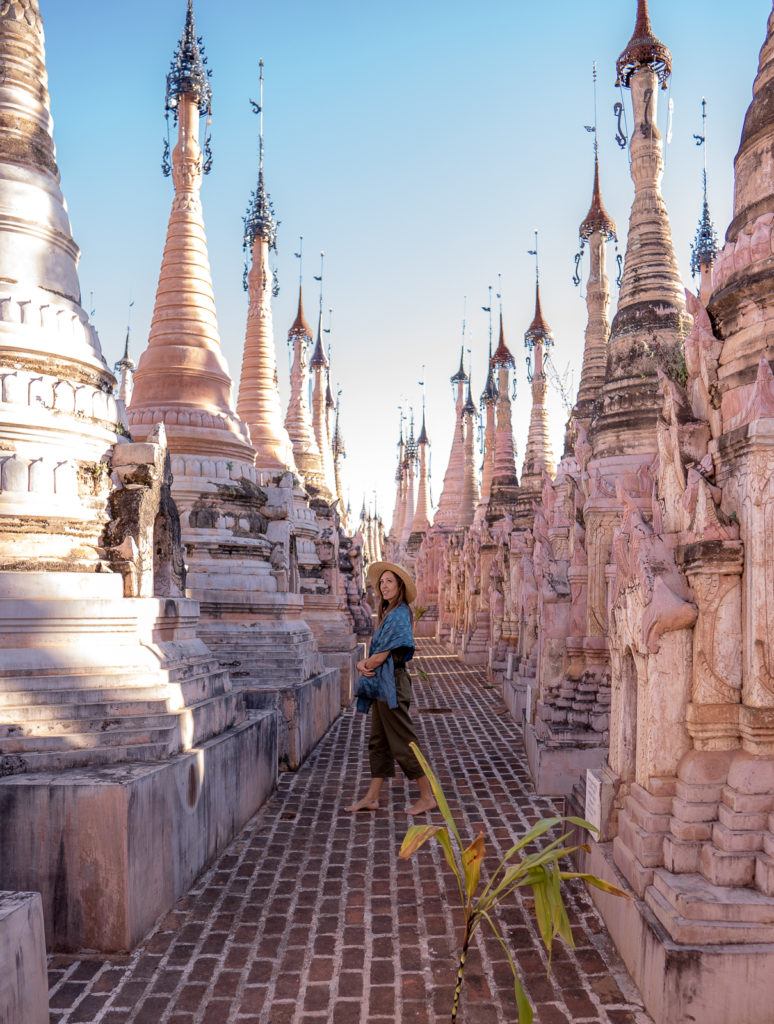
The world is your oyster! One of my favorite sources of inspiration is Instagram, where I save beautiful places that I want to go. Then I check it when planning a trip.
Kayak Explore is another great platform if you are open to visiting destinations that are under the radar. I used it to plan a monthlong trip to Myanmar a few years back, and ended up in unique locations across the country that I’d otherwise not have known of.
2. Climate, Seasons, and Holidays
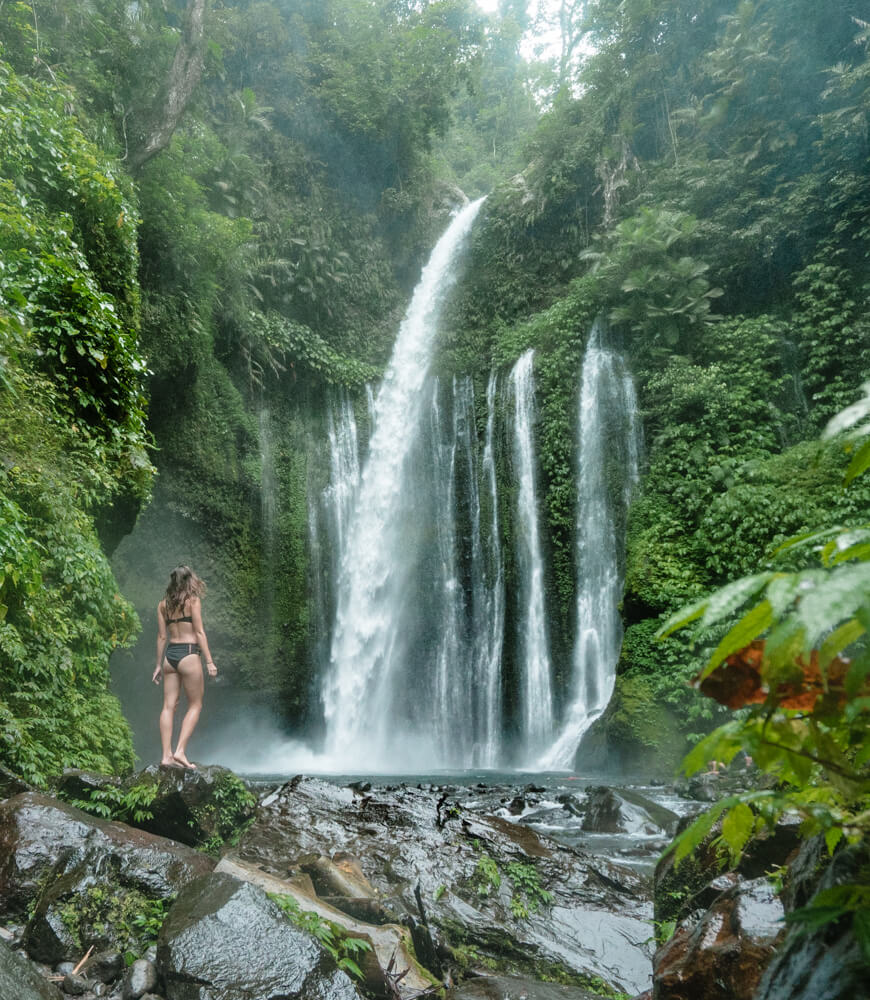
The next thing to consider is the weather, which you can easily find out by googling. There are often tables that show you what the rainfall and average temperature is like, to help you make an informed decision in terms of the best time to go.
I love traveling during shoulder seasons, when the weather is still great but there are far fewer people. I wouldn’t totally reject the idea of traveling during the off season, either. Southeast Asia, for example, offers lush jungles and lower prices, as well as room for serendipity, during rainy season. All it requires is a little bit of research to decide where you want to go and the activities you’d like to do. Note: In most parts of the world, that week between Christmas and New Year is pretty much the most expensive time to visit.
Make sure to research local holidays and plan your trip accordingly — the last thing you want is to land in Bali only to find out that it’s Nyepi, when the locals observe silence for a day, which means absolutely no business will be open. On the other hand, if you are interested in experiencing certain local celebrations, like the Lunar New Year in Vietnam, make sure to check the dates, as it varies every year. In short, you may find yourself wanting to avoid or build your trip around certain local holidays, so this is a crucial part of your research.
3. Budget and Time Frame

The next things on the list are your budget and time frame. I’d suggest spending more time planning for a budgeted or short trip, but leaving room for serendipity for a longer trip.
When I first went to Southeast Asia by myself nine years ago, I arrived in Thailand with a one-way ticket and had nothing booked, not even my first night of accommodation. I was rich in time, not in money, so I had the luxury of traveling slowly, basing my moves on others’ recommendations.
Most people have a shorter time frame, so work that into your calculations in terms of how many places you want to visit (and how much it costs to get to them), how much are you willing to pay for accommodation, and of course, the activities you want to do. Try not to squeeze in too many back-to-back activities, because you’ll want to remain relatively flexible for life happening, i.e bad weather, canceled tours, and so on.
Most destinations offer free walking tours, so definitely make use of that. In fact, they are my favorite way to kickstart my visit to a new destination, as you can discover new spots that you might want to return to later, as well as meet other solo travelers.
4. Itinerary
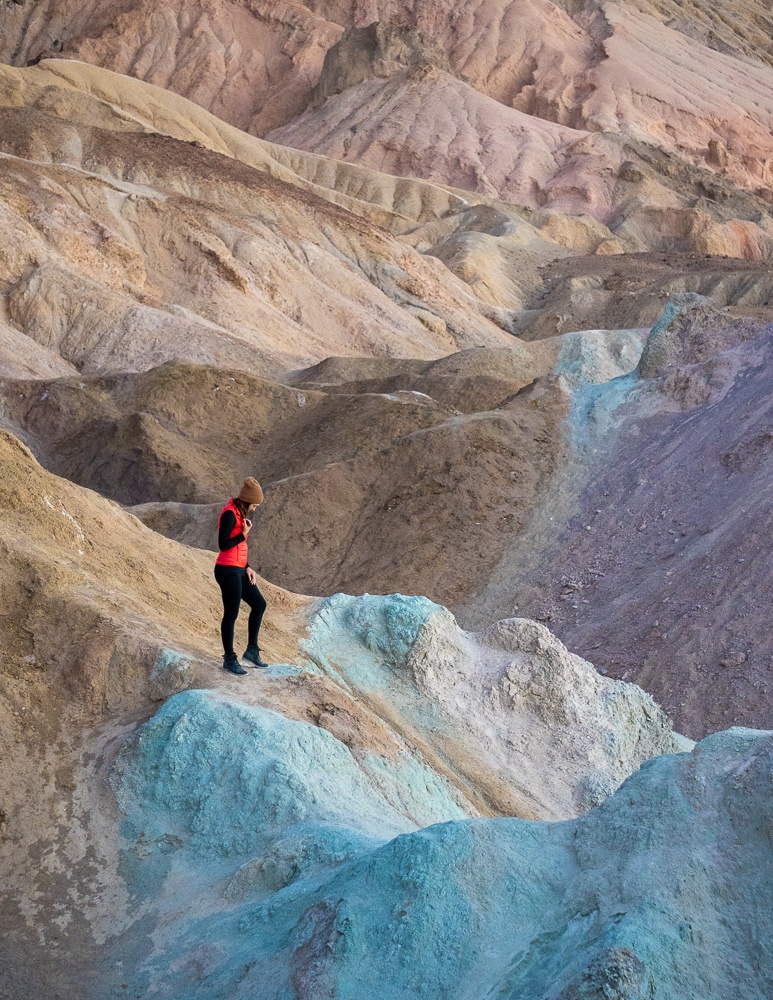
My biggest tip for building your trip itinerary is to find a travel blog. A personal blog written by somebody who has a lot of experience in a destination is possibly the best resource you can have, because you are going to get more personalized recommendations, honest feedback in terms of what’s cool and what’s not, and most likely a complete itinerary that will save you so much time.
Pinterest and Instagram are other great places to source things to do, both popular and off the beaten path. If you are into photography, you will find lots of inspiration! A tip for Instagram: you will get a lot of influencer posts on the location tab, but focus on the major reposting accounts, because they will lead you to the photographer who took the photo, and you will likely find a bunch of really good tips on the destination on their personal accounts.
5. Flights

Once your itinerary is built, you will know which airport you need to fly into (and depart from). There are a few ways to search for cheap flights. I love using Momondo, which allows you to input multiple legs of a journey and calculate of the cheapest option with different airlines, and offers a least-CO2 option, which I really appreciate.
You can also go to Google Flights to gauge pricing based on your traveling dates. You may also enable the “track prices” function to get notified via email whenever the price fluctuates in one direction or another. If you have flexibility in your schedule, look into the date grid, in order to piece together the best possible round-trip flight and save money.
Another trick is to book in the country’s local language. While this doesn’t always work, it’s worth a try. I was able to book the exact same flight from Berlin, Germany, to Johannesburg, South Africa, for half the price, by booking on the German booking website. Talk about score!
6. Accommodation
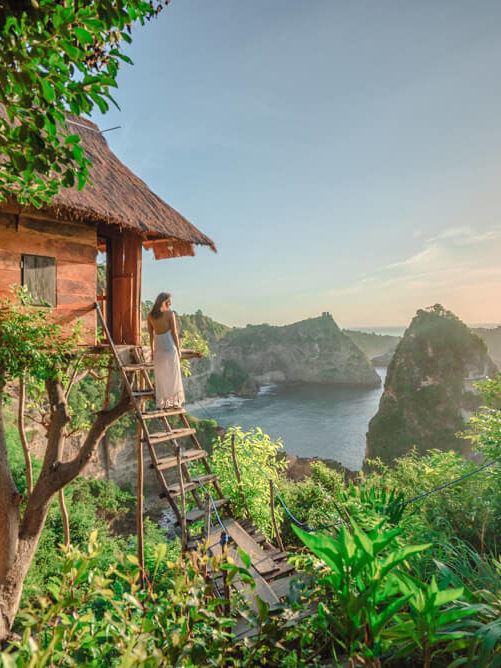
I find this a very exciting part of planning a trip: where to lay your head each night. Back in my backpacking days, it was all about finding the cheapest possible accommodation. But now that I have a little bit more of a budget to work with, I tend to mix in cool boutique hotels and unique Airbnbs, which often becomes an experience on its own.
Start with Google, which will aggregate a whole bunch of places at different price points. I also recommend Momondo, Booking.com, Expedia.com, and Agoda.com — but a lot of times, it’s better to just contact the property directly for cheaper prices.
On that note, I’d like to highlight the importance of considering locally owned accommodations, so that your money stay in the destination. Staying in foreign-owned, all-inclusive resorts often means that most of the money leaves the country. Be a responsible tourist and make sure that the locals actually benefit off of our visit. Spread the wealth around, so that people who run small businesses are able to make money as well — this is the crux of sustainable tourism.
7. Prepare for Landing
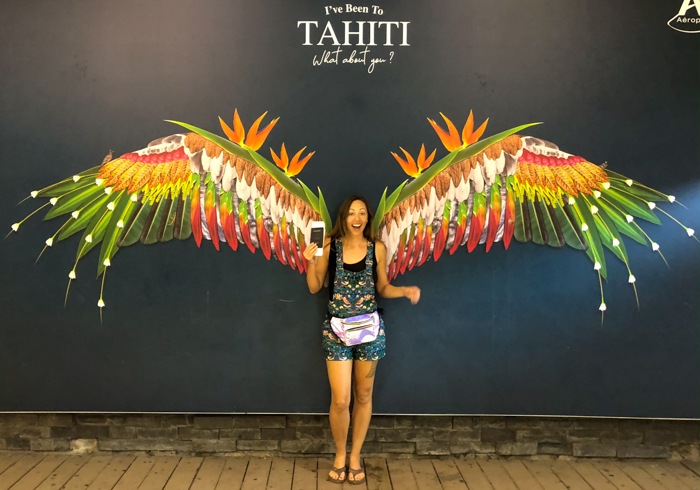
Finally, make sure you are fully prepared for the day you land. Read up on the scams and annoyances so that you are set from the moment you arrive at the airport. For this, there are many massage boards and travel blogs where people share their experiences and tips on transportation costs. This often-forgotten step only takes 10-15 minutes, and I never regretted doing this research for myself. You can’t always count on that airport Wi-Fi working, and unfortunately, you can’t be sure that people are trustworthy — on the contrary, it’s one of the best places to be a scammer, because so many people land in an airport without knowing what to expect.
I also try to get a local SIM card at the airport (unless during my research I find that they overcharge) and draw money out of the ATM there, so that I am already connected before I leave the airport. Having a confident start to your trip makes such a huge difference!
And there you have it! This is my favorite way to handle trip planning, and I repeat the process for each place that I want to go.
Pin me for later:
It’s really not that different than if you were planning a trip for other people, as these are all just logical steps. That being said, since it is a solo trip, you need to be extra clear on what it is that you want.



